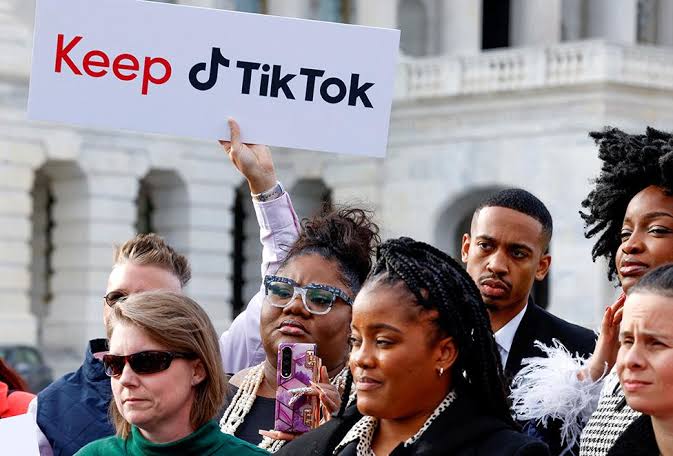As TikTok ceased to function in the United States late Saturday night, African American users joined millions in expressing a mix of disbelief, nostalgia, and grief. For many in the Black community, TikTok was more than just an app; it was a platform that amplified their voices, fostered creativity, and provided economic opportunities that transformed lives.
The ban, enforced after the Supreme Court upheld a law requiring ByteDance, TikTok’s parent company, to sell the app or face prohibition, left a deep impact. The decision came after weeks of speculation and humor on the app about its uncertain future, but as the final hours arrived, the mood shifted to somber reflection.
For African Americans, TikTok was a cultural hub—a place where Black creators often set trends, showcased talent, and built strong communities. From viral dances to thought-provoking commentary, the app became a space for visibility and empowerment.
Markell Washington, a 27-year-old creator who gained fame on the platform, held a mock funeral for TikTok, complete with a makeshift casket and eulogy. However, beneath the humor was a deep sense of loss.
“This app gave me financial freedom,” said Washington, who previously worked at a Subway sandwich shop before his TikTok success. “It’s like losing a relative. It doesn’t feel real yet.”
TikTok’s ban feels especially personal for creators like Washington, who relied on the app to escape economic hardship and connect with a global audience. Many African American users echoed his sentiments, mourning not only the loss of an income stream but also a platform where their creativity thrived.
Also, read: Cape Town Crowned Best City in the World for 2025 by Time Out
Content creator Alix Earle, who posted tearful videos reflecting on her six years of sharing her life on TikTok, captured the feelings of many users. “This platform is more than an app or a job to me,” she wrote. “I feel like I’m going through heartbreak.”
For Black TikTokers, the heartbreak is compounded by the cultural impact they had on the platform. From popularizing dances to influencing fashion and language, African American creators shaped the app’s identity. As Marc D’Amelio, father of TikTok star Charli D’Amelio, noted, TikTok holds “so much nostalgia and so much memory” for its users.
Many creators reposted their most iconic videos, with commenters reflecting on how far they had come. “Finishing how we started,” one user wrote, capturing the bittersweet farewell.
Despite the overwhelming sense of loss, TikTok’s trademark humor remained. Some users hosted virtual goodbyes, while others joked about their “assigned Chinese spies” or shared tips on using VPNs to bypass the ban.
Yet, the seriousness of the moment was not lost on Black creators. TikTok provided a unique space where Black culture was celebrated and monetized, and its loss raises questions about where these communities will thrive next.
“Losing TikTok isn’t just about losing an app—it’s losing a space where we felt seen, heard, and valued,” said one user in a farewell video.
As TikTok’s American users come to terms with the ban, many African American creators are exploring alternatives like Instagram, YouTube, and even Chinese platform RedNote. While these platforms offer opportunities, they don’t replicate the sense of community that TikTok fostered.
For now, the TikTok ban serves as a reminder of how integral the app had become to millions of lives, particularly in the Black community. From setting trends to changing narratives, TikTok gave African Americans a platform to shine—a legacy that will not be forgotten.

